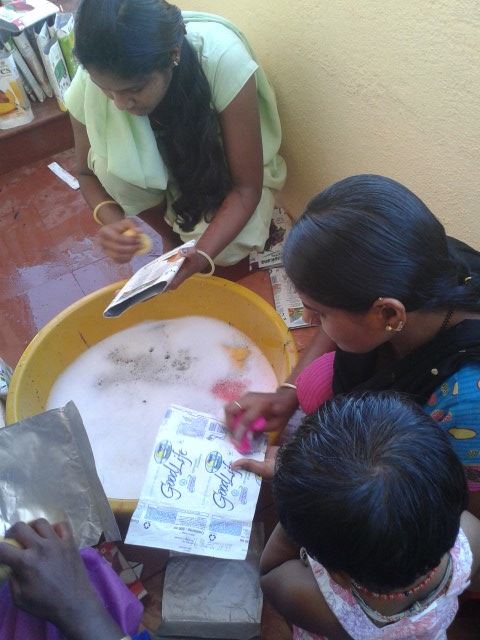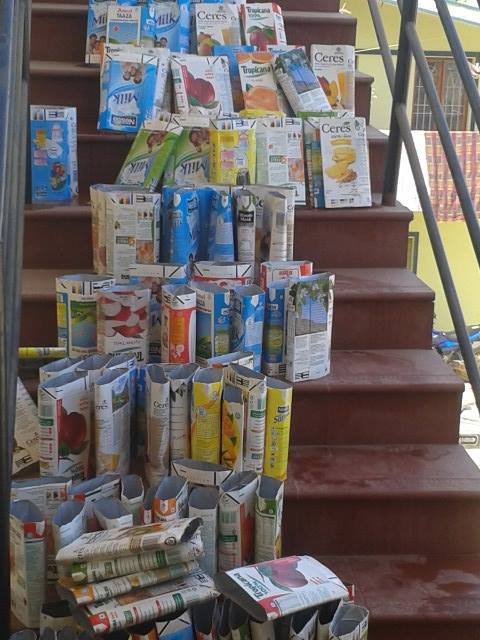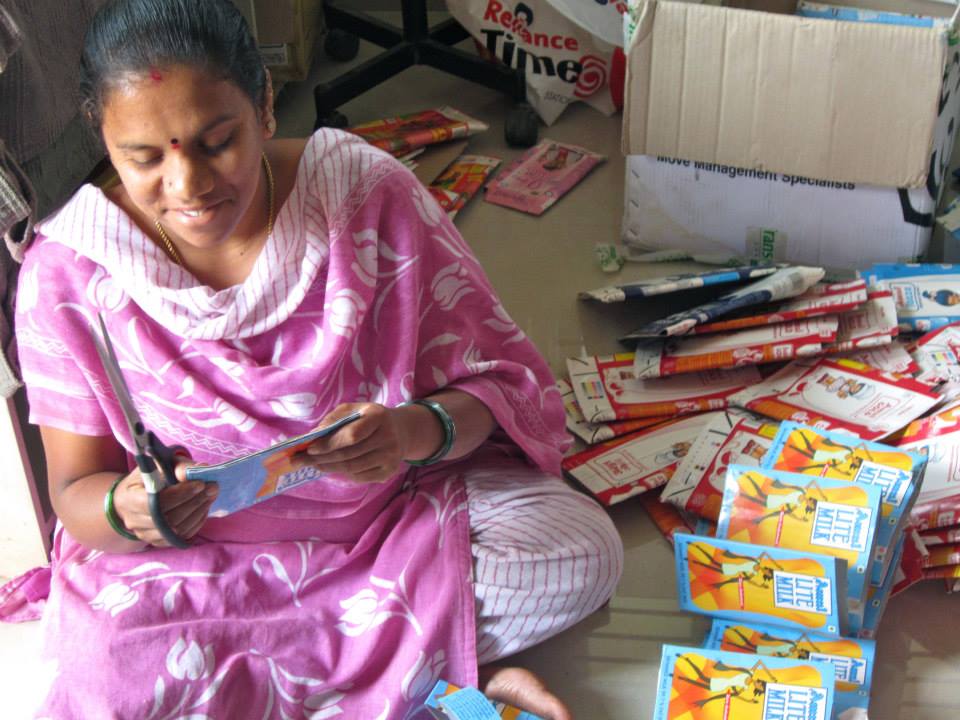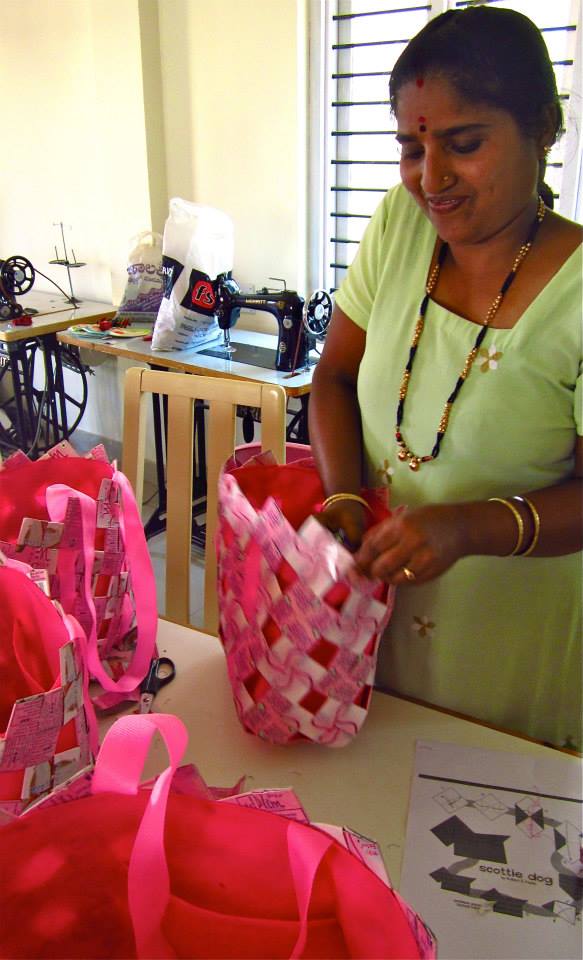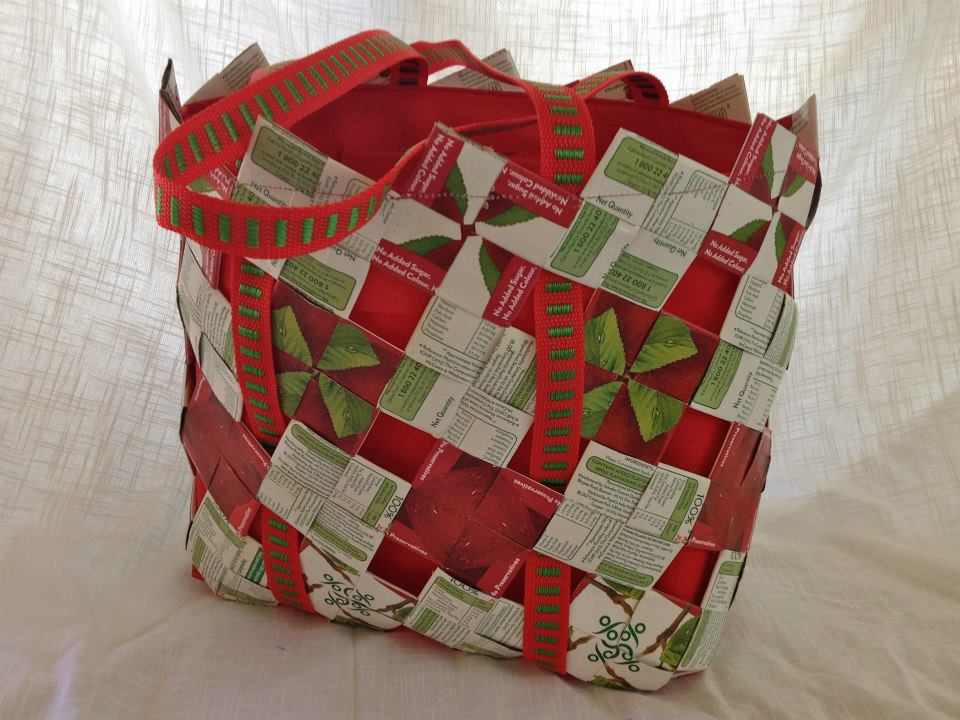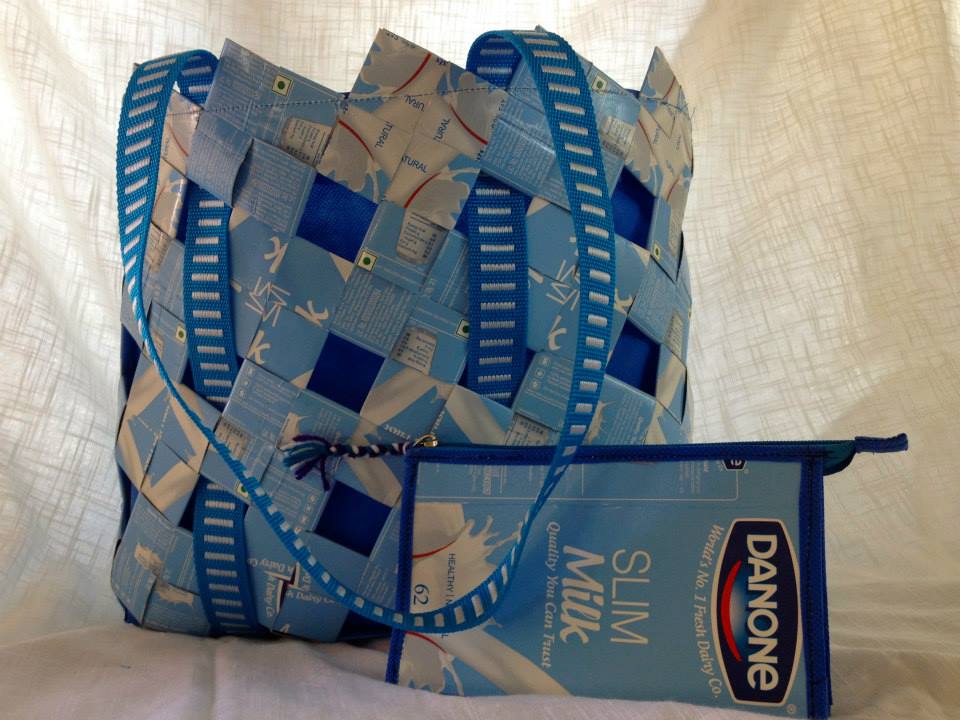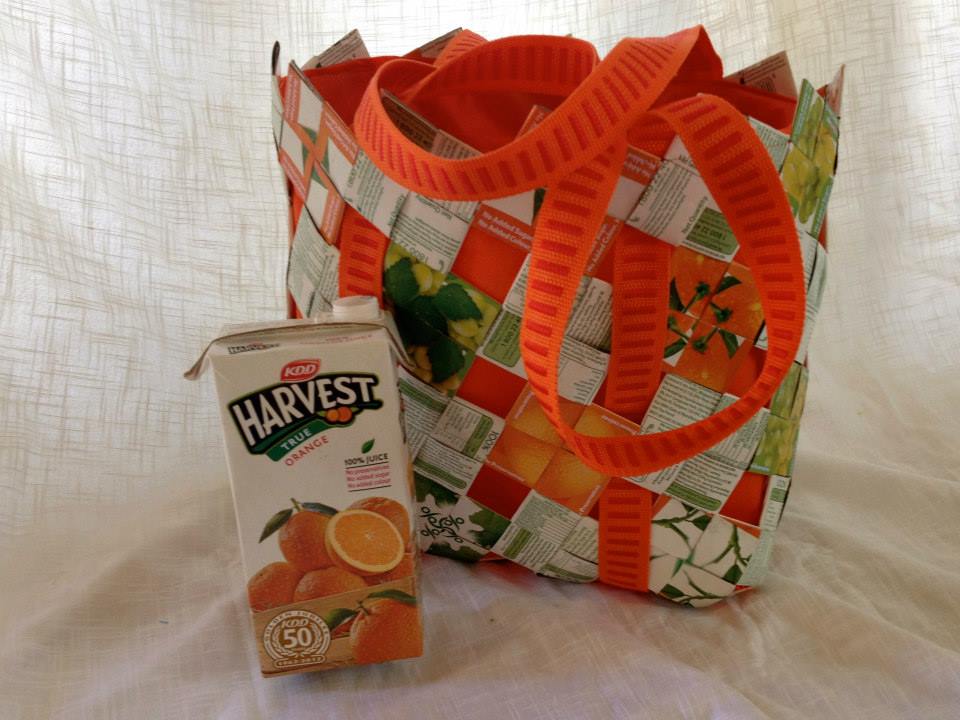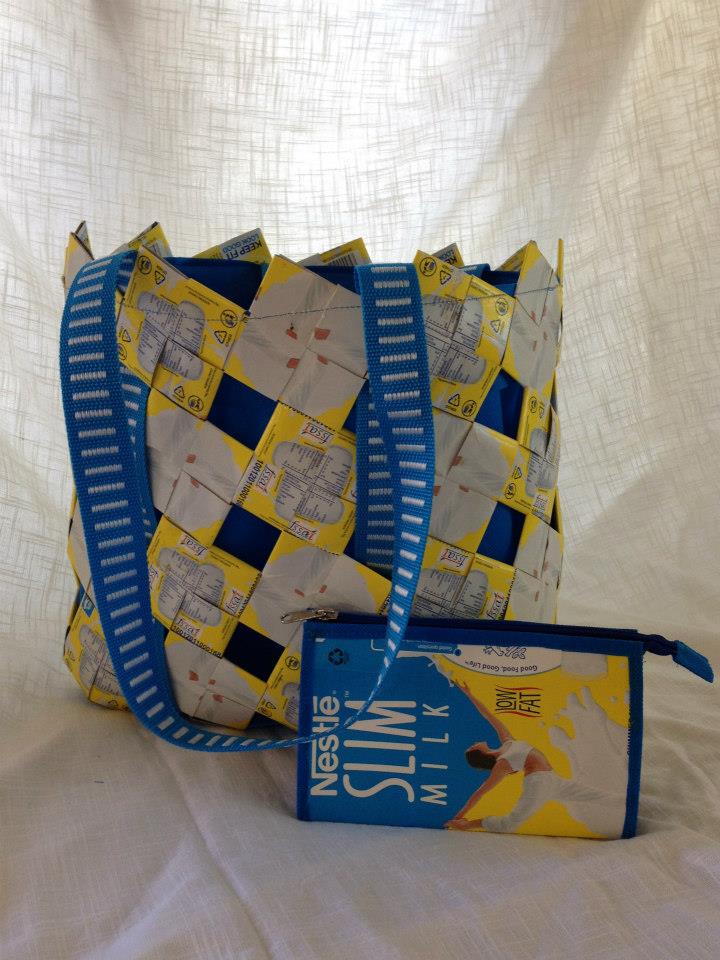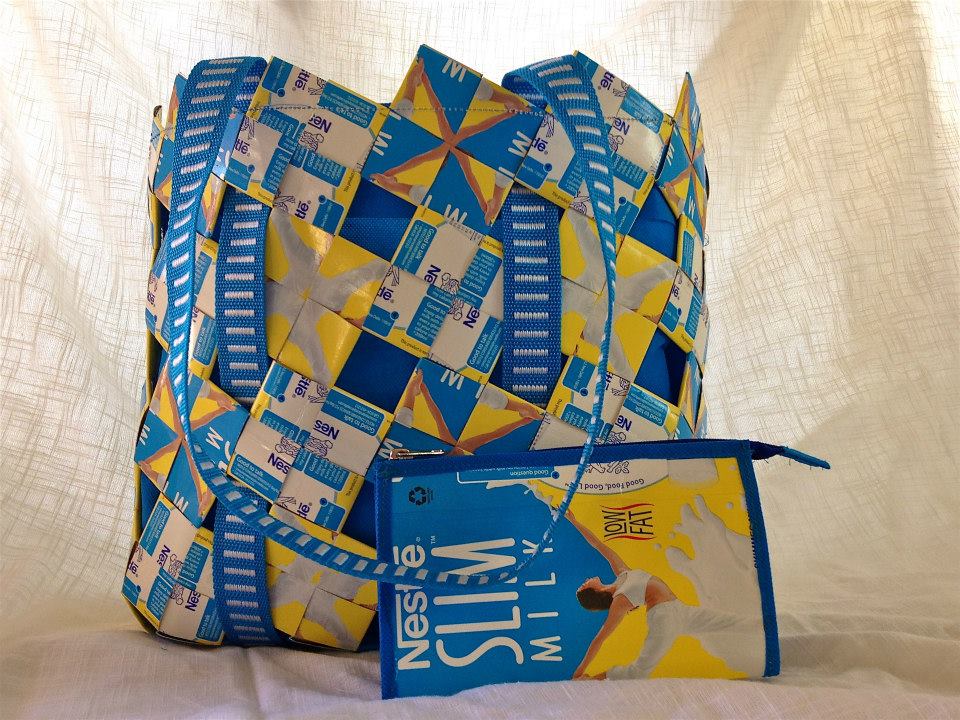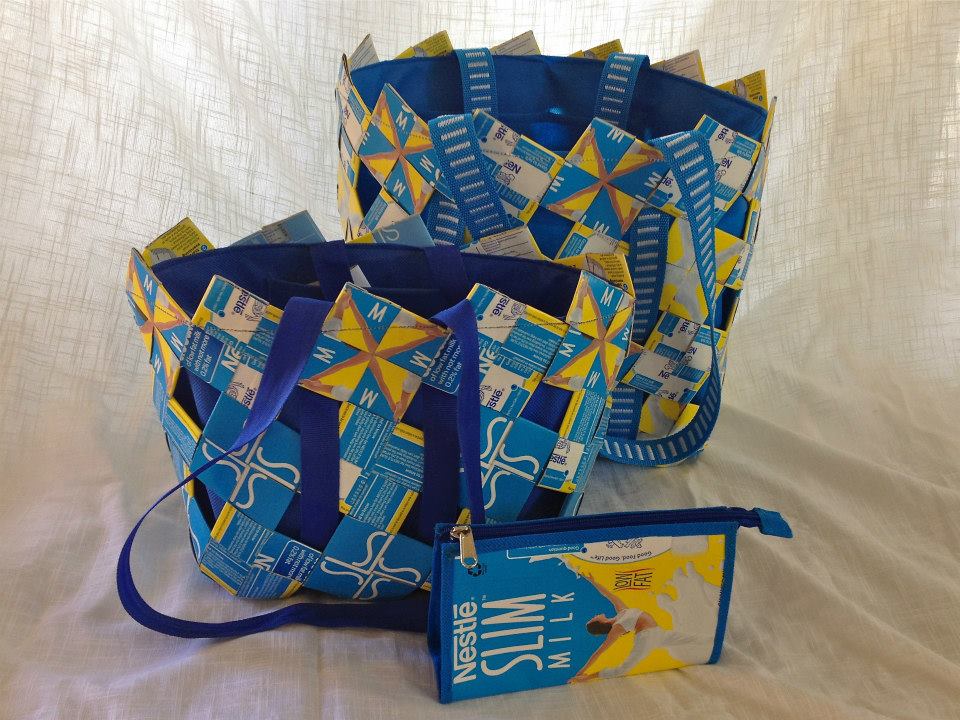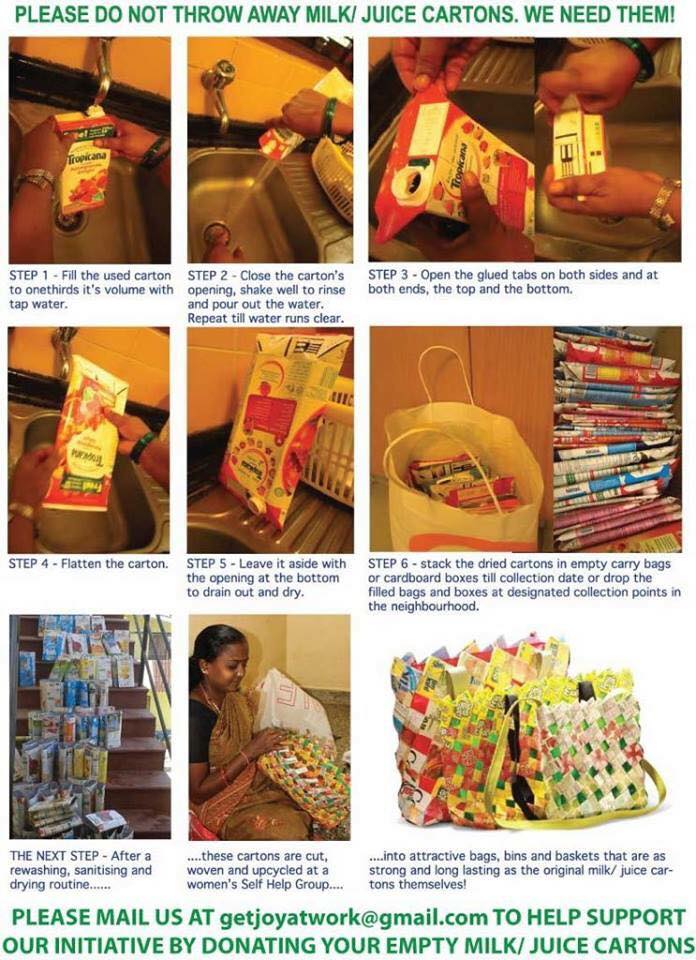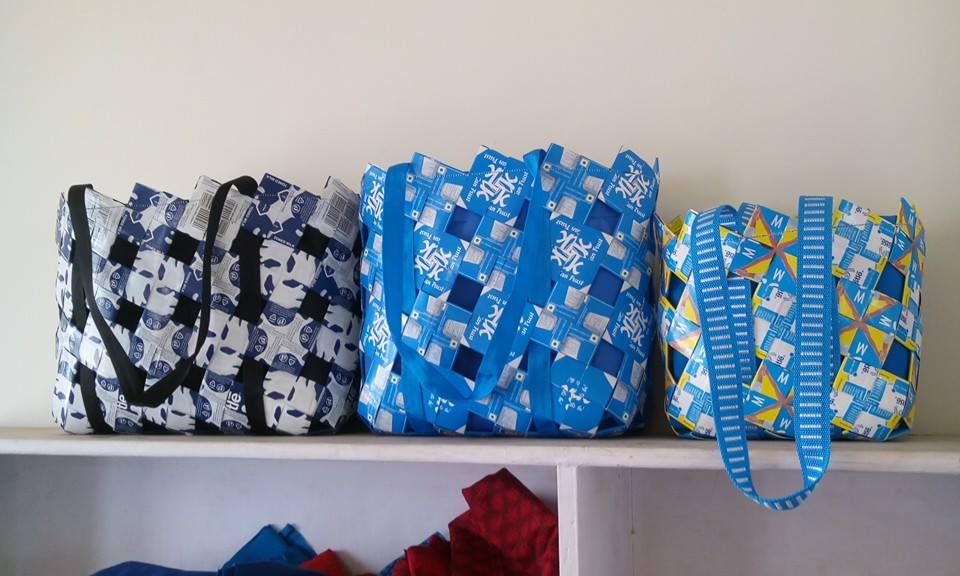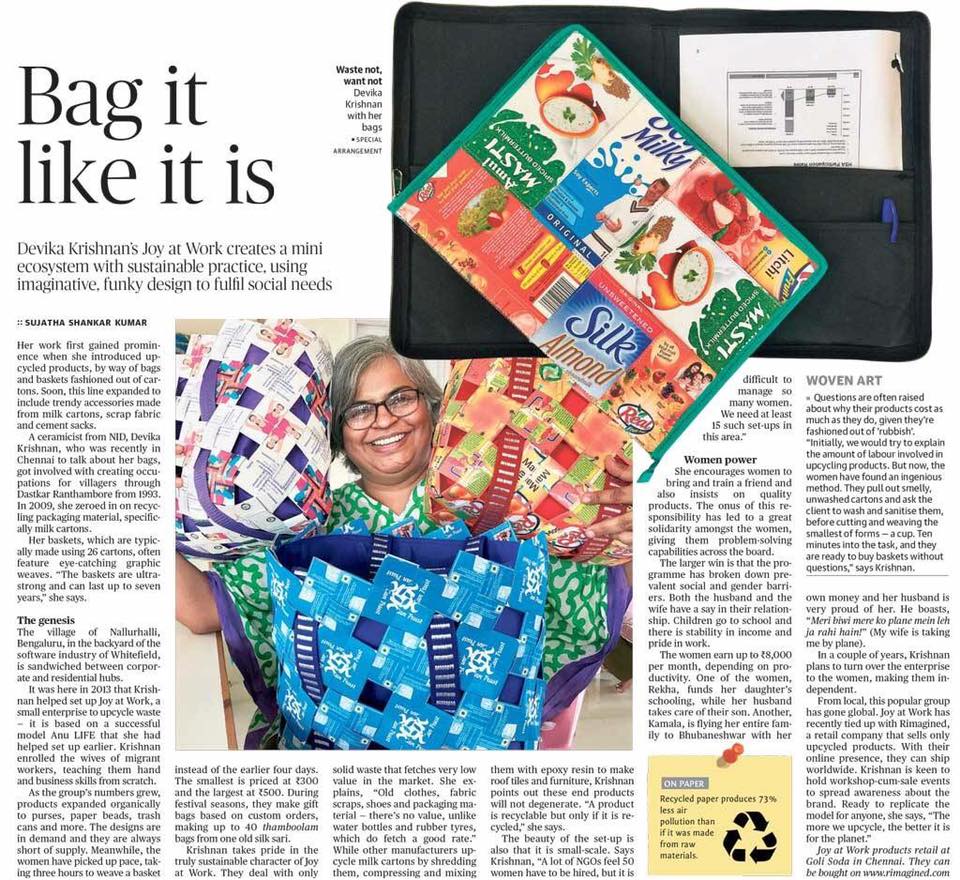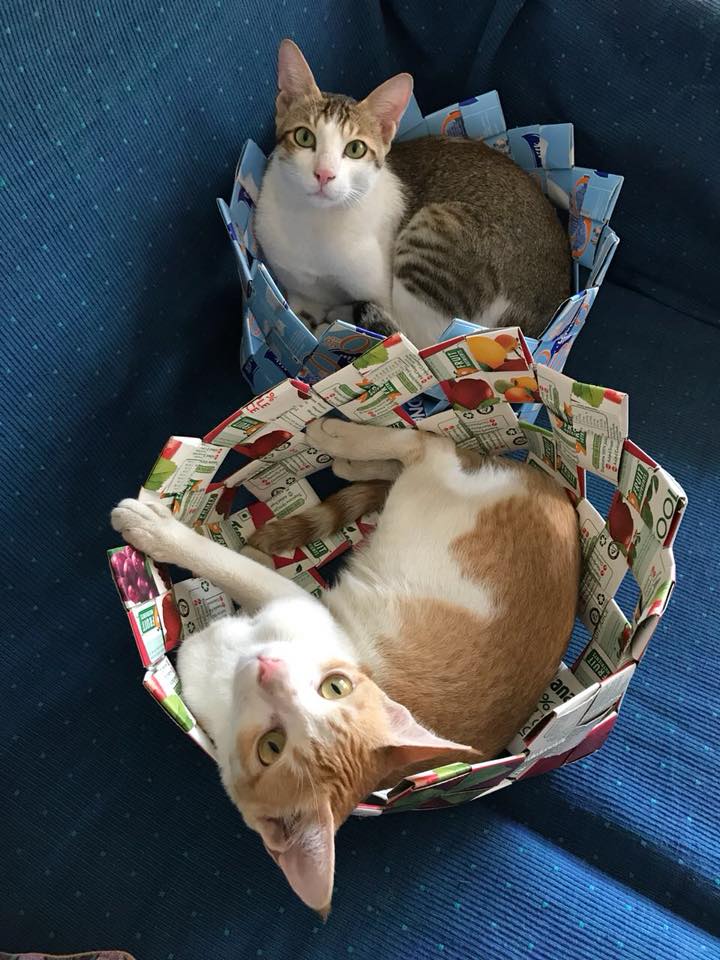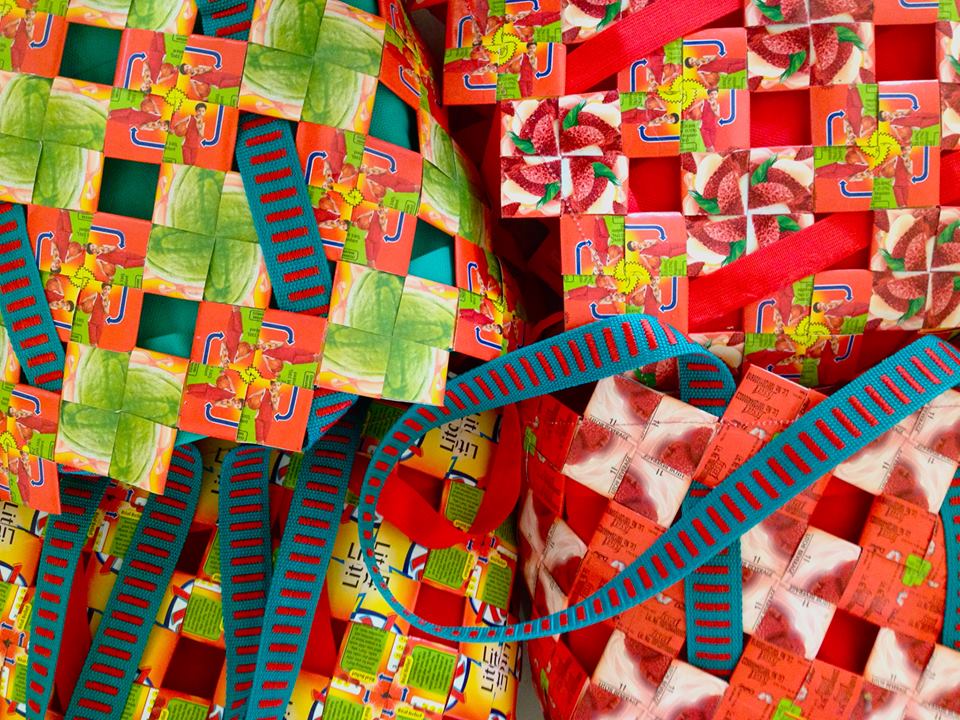Joy@Work women’s enterprise, Bangalore
Upcycling Alert! These women are making bags out of Tetra Paks!
Joy at Work is a women’s enterprise in Bangalore that is upcycling Tetra Paks, scrap fabric and cement sacks into trendy lifestyle accessories.

When a friend told me about how they make gorgeous bags made out of Tetra Pak and cement sacks at Joy at Work, I thought she was joking.
That was until I saw the work by Joy at Work, a women’s enterprise in Bangalore that has been upcycling Tetra Paks, scrap fabric and cement sacks into trendy lifestyle accessories. It was hard to believe that all those classy bags, pouches and jewellery I was staring at were once discarded materials destined for a landfill.
Joy at Work was started by Devika Krishnan, who since studying ceramics at NID has been working in the livelihood space. She has been part of on various craft-based livelihood projects across India, including working with Dastkar and the rehabilitation of women in Ranthambore (where she still goes for a month every year). She also works in Kashmir with the women of the Gujjar Bakarwal tribe on their traditional forms of embroidery.
Devika’s work in urban slums started in Bangalore in 2009, when she set up the Anu business unit in JanakiRam slum – which in four years has transformed into a private limited company completely owned and operated by the women from the slum, with no intervention from Devika.
Her new venture is called ‘Joy at Work’, where a small group of women churn out trendy lifestyle accessories made out of Tetra Paks, scrap fabric and fertilizer sacks at Whitefield, Bangalore.
Upcycling to solve the garbage crisis in Ranthambore
In ‘89, the government cordoned off the core zone in Ranthambore and the people from 15 villages were relocated from the forest. These people lost their ancestral land and their entire way of life. Subsequently, The Ranthambore Foundation approached Dastkar to set up an income generating project to resettle the villagers that had been displaced by the creation of the national park.
Devika initially started working there in ‘93 with the potters. She says, “At the centre, we did a lot of block printing, tailoring, making of bags, belts, clothes etc., so a lot of waste was generated out of all the fabric that got consumed. We noticed that the locals were making rope out of old cloth and using it for charpoys, a traditional practice. We realized there was no need to invent new uses for cloth since the people were already upcycling and making beautiful things out of it. The traditional craft was then used to make chindi (scrap fabric) animals and a range of wallets, iPad cases, bags and satchels.”
“Another big problem in Ranthambore was the total lack of garbage management. Mountains of garbage were dumped near the villages on the edge of the sanctuary. Paper, glass and plastic was taken by the kabadiwallahs but Tetra Paks and food waste etc. would just be sitting there, rotting away and in the mountain of garbage. We started working with Tetra Pak, replicating a traditional weave which uses river reeds to make modas (stools) and hand fans. And that’s how we started upcycling in Ranthambore.”
“In most places”, Devika clarifies, “The agenda is never about business or making money, it’s about keeping people engaged and finding economically viable solutions as people there now don’t have access to the forest to sustain themselves.”
‘Sewing’ the seeds of a sisterhood
When work started to become smoother and independent at Ranthambore, Devika was able to shift her focus onto other projects. She initially started working with women in the Janakiram Slum in Bangalore; who otherwise were involved in odd jobs – washing dishes at functions and sorting garbage while their menfolk worked at construction sites. These women had easy access to Tetra Paks and cement sacks. In fact, walls of some of their homes were built using cement sacks. Devika decided to use this ease of access creatively by getting the women to create embroidery on cement sacks and sew them into bags. The product design has been kept simple intentionally so as to keep the group functioning even without Devika’s intervention.
Another aspect to Joy at Work’s mission is to provide safety and security to these women, who are all migrants. “The idea was to sort of build a sisterhood where there’s a fallback mechanism for anyone in that group, they’re there to take care of each other”, she says. The group in Janakiram Layout was named ‘Anu’ (the women came up with the name themselves). Joy at Work has also been working in Nallurhalli, Whitefield since 2013 with a small group of women. The initiative is largely self funded except for the capital that Devika invested a few months back. Devika is looking to expand the ‘sisterhood’ by encouraging the women to get their friends into the initiative as well.
Sustainable business, not charity
Devika is clear that her work (at Ranthambore, Anu, Joy at Work) is not charity, but a sustainable business. Since the goal is to use solid waste that has no resale value and usually goes into landfills, they don’t work with PET bottles, plastic, paper and tyres. “Since our margins are slim, we don’t participate in markets where rates are high. I also don’t like to ‘trick the buyer’ with a huge mark-up.”, says Devika. The products are not sold at regular retail stores since production is small and the stores often keep things on credit and pay up only when the items are sold. When quizzed about people’s reaction to their products, Devika says people are interested once they realize that the accessories are made from Tetra Pak. No wonder then that their biggest seller is this, the Tetra Pak basket.
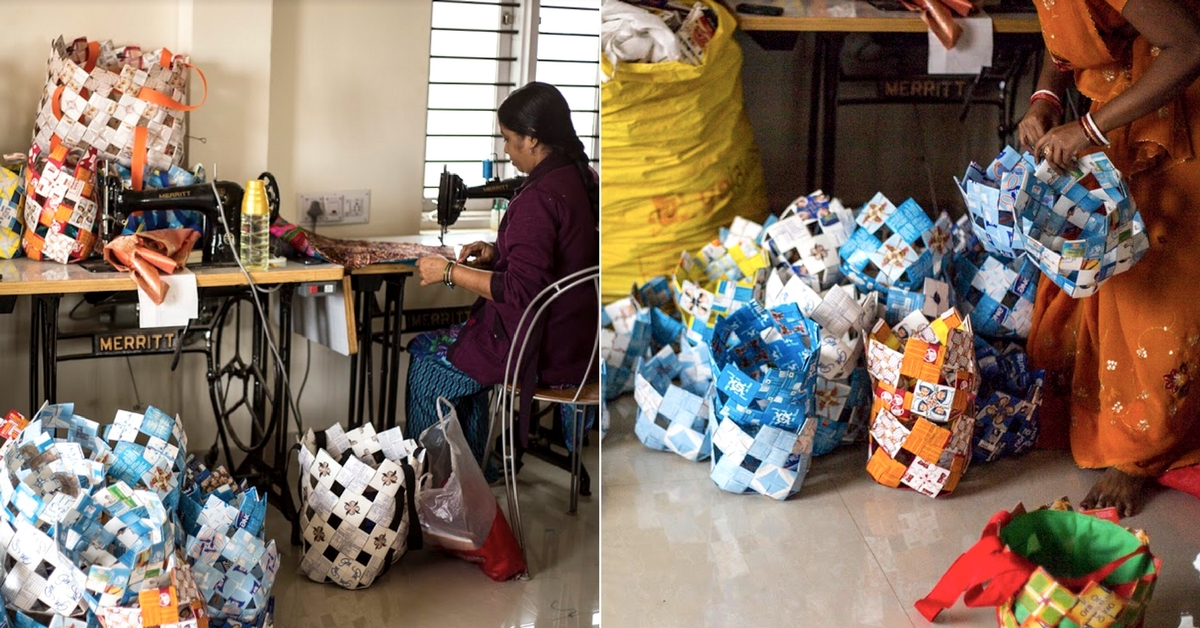
Bags made out of tetra packs that usually are cast away to landfills. Courtesy: Rimagined.
Rimagined was launched as a label thanks to an intervention from Devika Krishnan, a well-known designer in Bengaluru, which led to a collaboration, with Rimagined becoming the retail face for Joy@Work. (2)
Joy@Work, Bangalore

PROFILE
Joy@Work is a women’s enterprise in Bangalore that upcycles tetrapaks, scrap fabric and cement sacks into trendy lifestyle accessories.

